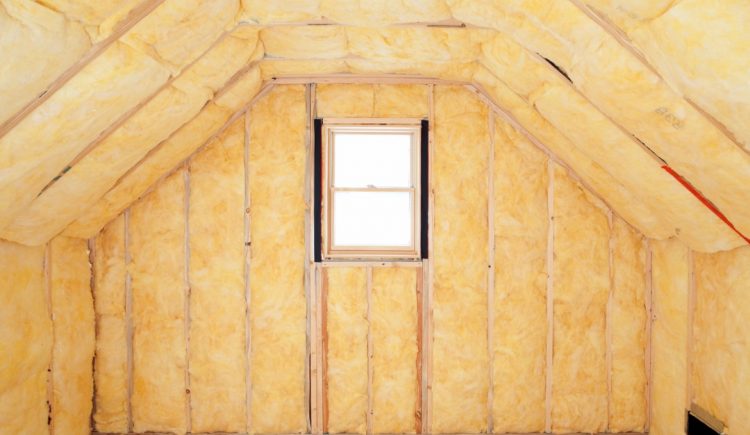Insulation is necessary to maintain a relatively stable temperature inside a home. If a house doesn’t have enough insulation, that can force the furnace and air conditioner to work harder than they should to maintain a comfortable temperature, which can result in high energy bills. Too much insulation, on the other hand, can cause its own set of problems.
Even a Well-Insulated House Needs to Breathe
Insulation seals a house to reduce airflow between the interior and exterior. That helps to keep cold air out and keep warm air inside during the winter. In the summer, insulation helps to keep hot outdoor air from entering a house while keeping cooled air inside.
Most attics have vents that allow outdoor and indoor air to circulate. Ventilation is important because it keeps snow on the roof from melting, running down to the eaves and gutters, refreezing and forming ice dams. In the summer, vents allow hot, moist indoor air to escape. That prevents moisture buildup inside the house and protects roofing shingles from damage.
Why More Insulation Isn’t Necessarily Better
Sometimes homeowners who are frustrated by high utility costs get a home energy audit to find the source of the problem and figure out what to do about it. When they learn that their house is under-insulated, homeowners install more insulation to cut their utility bills. However, installing too much insulation can backfire.
Excess insulation in the attic can make a house too tightly sealed and block vents. If airflow is blocked, moisture can’t escape. If moisture accumulates in the attic and comes into contact with warm air, that can allow mold to grow, which can result in serious respiratory problems in people.
A house needs a type of insulation that’s appropriate for the climate in that region. Insulation has an R-value that refers to its thermal resistance, or how well it resists heat transfer. Over-insulating your attic or using the wrong type of insulation can increase costs, provide little or no benefit and possibly create larger problems.
What to Do If You Find Mold in Your House
If your home has mold, you need to address the issue as soon as possible, as mold is a serious health hazard. Over-insulation is just one possible cause of mold. Your home may have a leaky roof or pipe, or a problem with the HVAC system. Have a contractor come to conduct an inspection. A professional can pinpoint the source of the issue and recommend an appropriate solution.










